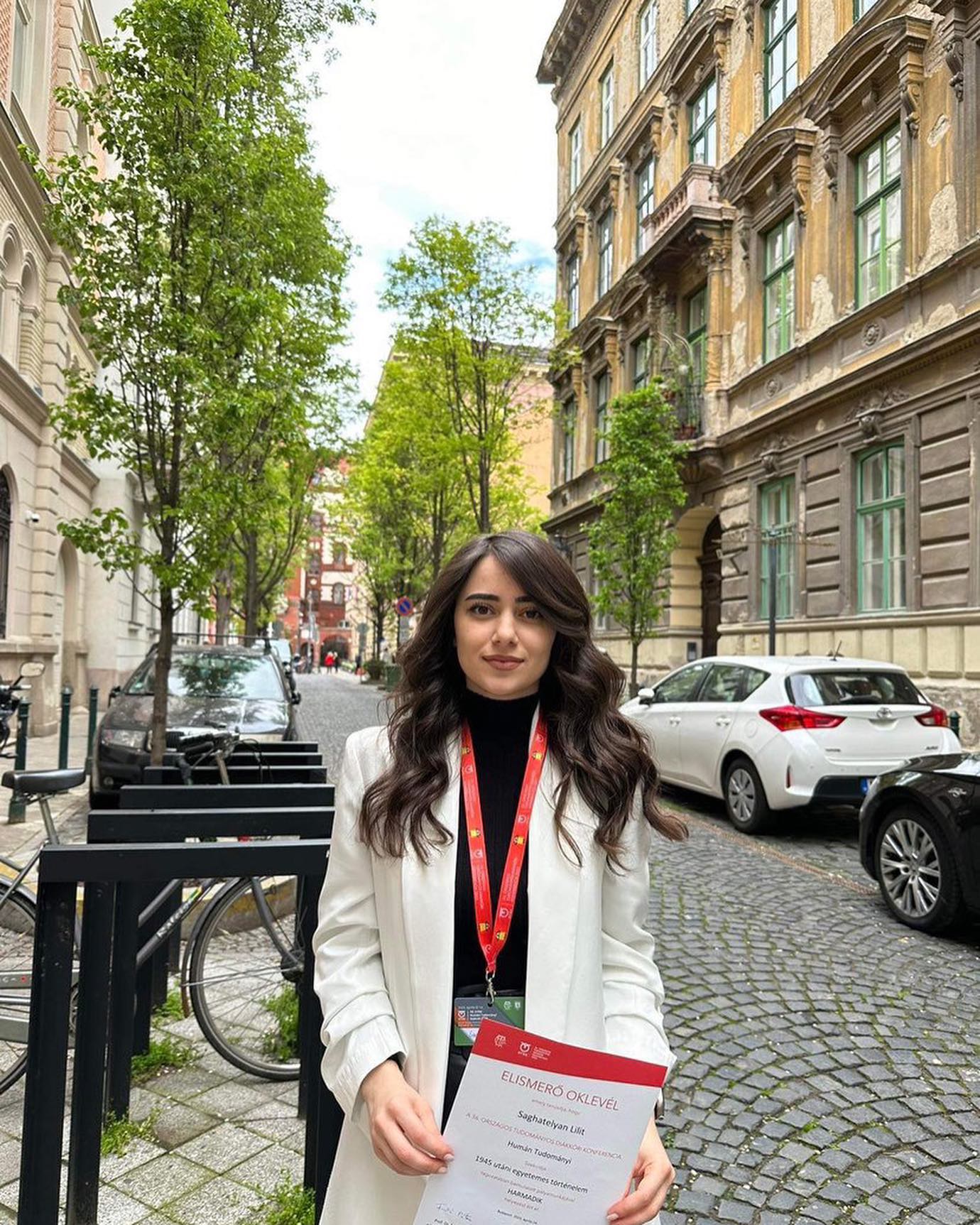Interview II
Lilit Saghatelyan
Historical Citizenship in the Soviet Border Region: The Armenians of Nachichevan
(Third Place)

Dear Lilit, your topic is about the Nakhichevan Armenians. Could you tell us how the idea of this topic emerged?
Well, as I developed the notion "historical citizenship", I decided to apply it the Soviet context. I feel that there is a gap in Soviet Studies concerning peripheral regions of Soviet Union. Nowadays they play an important role in the daily life and politics of South Caucasus, thus they are worth of discussing. I consider Nakhijevan a typical example of creating historical identity alongside territorial ideologies. And before me, no one carried out such kind of research about this forgotten and small region. So I decided to raise the voice of those Armenians who consider Nakhijevan their historical homeland.
How difficult was the process of conducting interviews with the Nakhichevan Armenians?
To tell the truth, I faced some difficulties while conducting Oral History Interviews. Regarding the fact that these Armenians left their homes more than about fifty years ago and they were spread to different parts of world mainly settling in Russia, so I could hardly find connections with Nakhijevani Armenians. In this regard, I am thankful to my supervisor Balint Kovacs who introduced me to Hakob Matevosyan, who showed his willingness to help me, he is sociologist and he taught me the methodology for carrying out the interviews, and having Nakhijevani roots himself, I was able to find personal connections. Moreover, I found a group chat in the social media, and to my surprise, a lot of Nakhijevani Armenians were eager to give interviews. But the scope was limited, and it included middle aged group, as older people refused to give interview, for some it was hard to speak about their past as it caused emotional feelings. I conducted my interviews in the Republic of Armenia in the summer of 2022.
Are you planning to evaluate the thesis in the future, and how?
Hopefully soon, this work using historical citizenship knowledge will be taken into further consideration as part of a larger research work and will be applicable to other peripheral areas of the Soviet Union. Good ground for social studies theory investigations, as in my research, citizenship and state membership have social implications. I am going to extend the scope of my Oral history interviews, including the new generation as well, and analyse how diasporic representation about homeland change from one generation to another.
Interviewer: Anna Galstyan


